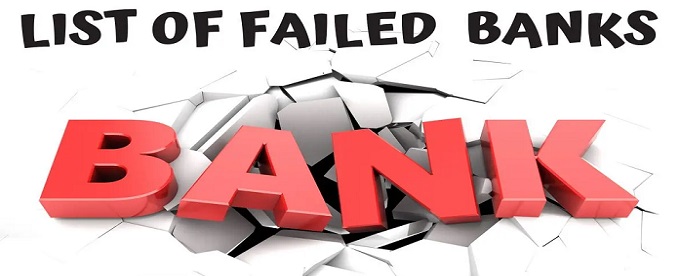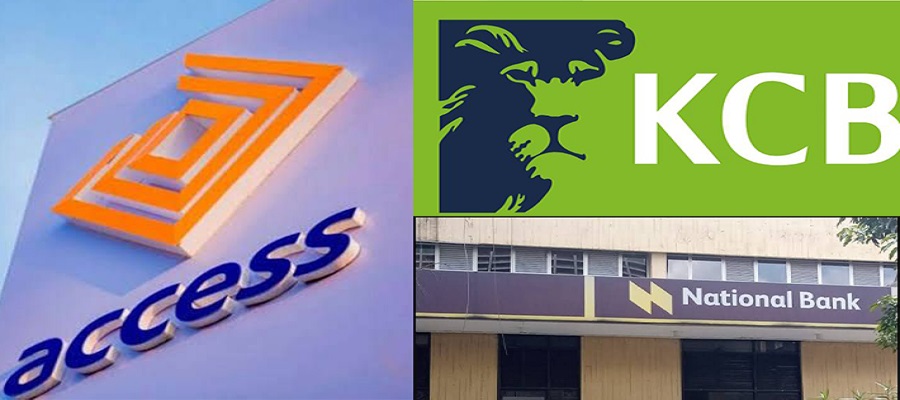E-Financial
NDIC Partners Judiciary to Prosecute Failed Banks

Nigeria Deposit Insurance Corporation (NDIC), has strengthened its partnership with the judiciary aimed at enhancing the prosecution of failed banks, according to Bello Hassan, managing director of the corporation.

Hassan stated this at the ongoing 19th Abuja International Trade Fair with the theme: “Mobility: Options for Transport, Trade Finance, and Taxation,” in Abuja.
He said the NDIC’s swift response in the case exemplifies its critical role in maintaining financial stability and protecting depositors from the impacts of bank failures.
NDIC also reaffirmed its dedication to safeguarding the deposits of Nigerians, especially to the recent closure of Heritage Bank.
Hassan explained that the initiative has allowed the NDIC to successfully compensate 84.98% of depositors with linked accounts, ensuring that insured amounts of up to N5 million were credited without requiring physical visits to NDIC offices.
He said: “The importance of deposit insurance cannot be overstated in a financial system where confidence is essential. It acts as a safety net that reassures depositors, builds trust in the banking system, and helps to prevent bank runs during periods of uncertainty.
“Over the years, the NDIC has been instrumental in promoting stability by ensuring that when banks fail, depositors are promptly compensated.
“The recent closure of Heritage Bank, following the Central Bank of Nigeria’s revocation of its operating licence on June 3, 2024, underscores the crucial role of the NDIC in protecting depositors. In line with the provisions of the Banks and Other Financial Institutions Act (BOFIA) 2020 and the NDIC Act 2023, the NDIC was appointed liquidator to oversee the resolution of the bank and the payment of its depositors.
“In an unprecedented achievement, the NDIC commenced payments to depositors within four days of Heritage Bank’s closure. By leveraging depositors’ Bank Verification Numbers (BVN) as a unique identifier, the Corporation was able to identify alternate accounts and credit the insured amounts of up to N5 million directly, without the need for forms or physical visits to NDIC offices. This innovative approach has enabled the payment of 84.98% of depositors with BVN linked accounts to date.
“This prompt response, alongside the recent increase in deposit insurance coverage from N500,000 to N5 million, has significantly mitigated the impact of the bank’s failure on depositors.
“Significant progress has been made in protecting depositors’ funds, with the recent increase in maximum deposit insurance coverage providing enhanced protection across various financial institutions.
“This increase ensures that 98.98 per cent of total depositors in Deposit Money Banks (DMBs), 99.27 per cent in Microfinance Banks (MFBs), 99.34 per cent in Primary Mortgage Banks (PMBs), and 99.99 per cent in Payment Service Banks (PSBs) are covered. reinforcing NDIC’s commitment to fulfilling its mandate.
“While our immediate focus remains on insured deposits, the NDIC is also committed to ensuring that depositors with balances exceeding N5 million are compensated. These larger, uninsured deposits, represent a significant portion of the total deposits in Heritage Bank.
“The Corporation has already initiated the process of realising the bank’s assets and recovering debts to ensure the timely payment of the uninsured depositors through liquidation dividends.”
Hassan also urged depositors affected by bank closures to stay informed and submit their claims through official NDIC channels, reinforcing the corporation’s commitment to ensuring that all depositors receive the protections they deserve.
The NDIC’s renewed focus on collaboration with judicial authorities marks a significant step towards enhancing regulatory oversight and promoting a more resilient banking environment in Nigeria.
E-Financial
CBN Pumps in Additional $150m into Forex Market to Safeguard Naira

Central Bank of Nigeria (CBN) has reportedly injected $150 million into the foreign exchange market at the beginning of the week to keep the naira safe under pressure.

With sustained forex market intervention, a slew of analysts have formed a consensus that the exchange rate would trade range-bound in the second quarter.
Last week, the Apex Bank sold $635 million to authorized dealer banks in FX market amidst efforts to strengthen liquidity levels in the market.
A potential slowdown in US dollar supply could trigger negative exchange rate movement, according to analysts.
Again, the naira faced another round of demand pressure in the official window as offshore investors continued to exit positions in naira assets.
To stem the negative impacts of unusually high demand for US dollars, the CBN intervened with a sale of $150 million at rates between $/₦1,593.20 and $/₦1,623. Throughout the session, the USD/NGN pair moved within a range of $/₦1,593.10 to $/₦1,630, AIICO Capital Limited reported.
Data from the CBN showed that gross external reserves fell to $38 billion in the absence of additional inflows and a slowdown in oil FX receipts.
In the global commodity market, oil prices fell on Monday despite some positive signals, including exemptions for electronics from U.S. tariffs and a sharp rebound in China’s March crude imports.
These factors were overshadowed by ongoing fears that the prolonged U.S.-China trade war could hurt global economic growth and weaken fuel demand. Brent crude dropped 42 cents, or 0.65%, to $64.34 a barrel, while U.S. West Texas Intermediate (WTI) crude slid 53 cents, or 0.9%, to $60.97.
Meanwhile, gold prices declined over 1% after reaching a new record earlier in the day.
Improved risk sentiment following the tariff exemptions on smartphones and computers contributed to the dip. Spot gold fell 1.1% to $3,200.11, while U.S. gold futures declined 0.9% to $3,216.20. #CBN Injects Additional $150m into FX Market to Safe Naira First Holdco Falls below N1 Trillion in Equities Market
E-Financial
Kenyan CBN Okays Access Bank Full Acquisition Of NBK

Access Bank, a subsidiary of Nigeria’s Access Holdings Plc, has received final regulatory approvals to acquire 100 per cent shareholding of the National Bank of Kenya (NBK), marking a significant milestone in the lender’s strategic expansion across East Africa.

The Central Bank of Kenya (CBK) confirmed on Monday that it granted approval for the transaction on April 4, 2025, under Section 13(4) of the Banking Act.
In a coordinated move, Kenya’s Cabinet Secretary for the National Treasury and Economic Planning also gave the green light on April 10, 2025, pursuant to Section 9 of the same Act.
Access Bank is acquiring NBK through a full purchase of shares from KCB Group Plc, which has held complete ownership of the bank since 2019.
As part of the acquisition, selected assets and liabilities of NBK will be transferred to KCB Bank Kenya Limited, a wholly owned subsidiary of KCB Group.
The CBK and the Treasury have both approved this transfer as an integral component of the broader transaction.
According to CBK, the acquisition will be finalized upon the full completion of agreed terms between Access Bank and KCB Group. Once completed, Access Bank will officially own and operate NBK, positioning itself as a stronger competitor within Kenya’s dynamic financial services landscape.
The acquisition of NBK aligns with Access Bank’s long-term strategy to scale operations in East Africa and deepen its presence in Kenya, one of the continent’s most competitive banking markets.
The move is expected to enhance Access Bank’s capacity to deliver innovative digital and financial solutions to a broader customer base in the region.
The CBK welcomed the acquisition, stating that the transaction is consistent with its objective to promote the development of a sound, stable, and inclusive financial sector.
The regulator expressed confidence in Access Bank’s capability to ensure continuity of services at NBK while strengthening financial resilience in the market.
“The acquisition will enable Access Bank to leverage NBK’s infrastructure and customer base, thereby enhancing service delivery and financial inclusion in Kenya,” the CBK noted.
Access Bank’s expansion reflects a broader trend of cross-border banking consolidation in Africa, as regional financial institutions seek to build scale, diversify risk, and foster long-term growth across key markets.
E-Financial
SEC Says CBEX, other Unregistered Digital Platforms are Illegal

Securities Exchange Commission (SEC) has charged all fintechs, cryptocurrency firms and exchanges to register with the commission. This is coming weeks after President Bola Tinubu assented the Investments and Securities Act 2024 into law, making its provisions officially enforceable.

Dr Emomotimi Agama, DG, SEC
“If you are not registered with the SEC, you are illegal,” Dr Emomotimi Agama, director general, SEC, said during a virtual engagement that held yesterday.
“Registration is the hallmark of regulation. If there is no registration, there is a violation. Hence, we all must educate ourselves and clear any doubt in the process of building a strong Fintech ecosystem.”
The desire to fast-track digital asset licensing and registration is slowly becoming a core mandate for Agama in 2025.
This turnaround is quite significant from 2021, when the rise of cryptocurrency was stalled by several bans, hurting the growth of the sector.
However, the SEC boss is determined to avoid sharp practices and safeguard investors from pump and dump schemes, ponzi schemes and volatile meme coins introduced by celebrities.
Last year, the commission warned the general public against meme coins introduced by African singer and songwriter, Davido.
For the digital asset providers seeking licensing who have not yet gotten a response, Agama noted that work has been happening underground.
“We have observed some significant issues which we need to take care of. Some of the new applications need a level 3 due diligence before getting a provisional license. It must have taken longer than necessary. However, what we are trying to do is to make sure that every gap is covered.”

 E-Business1 day ago
E-Business1 day agoNITDA Warns Against Fake Google Play Store

 E-Financial1 day ago
E-Financial1 day agoAfrica Loses $88.6Bn Yearly to Corruption- ECOWAS

 News1 day ago
News1 day agoNOA Uncovers Fraud by Banks, Universities in Students Loan Scheme

 General News1 day ago
General News1 day agoLagos Commences Integration of NIN with State Single Social Register

 E-Financial1 day ago
E-Financial1 day agoUBA Redefines Banking with Next-Gen PoS Terminals and Revamped MONI App

 E-Financial1 day ago
E-Financial1 day agoNIBSS Heads to Court to Recover N4Bn Lost due to System Glitch

 E-Financial1 day ago
E-Financial1 day agoSEC Bans Unregistered Digital Asset Exchanges, Online Forex Platforms

 General News1 day ago
General News1 day agoNigeria Records $6.83Bn Balance of Payments Surplus in 2024 Amid Economic Reforms

























